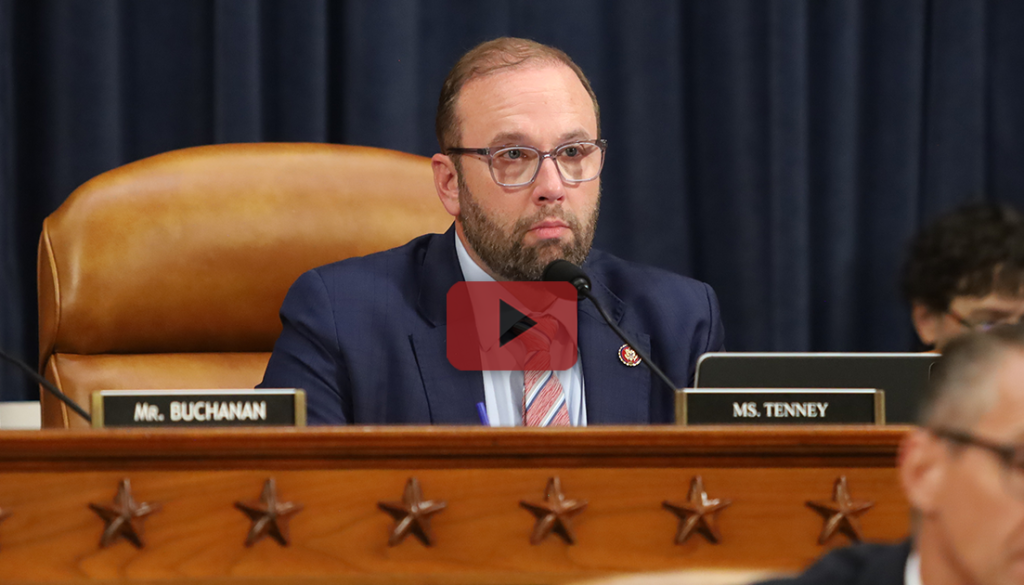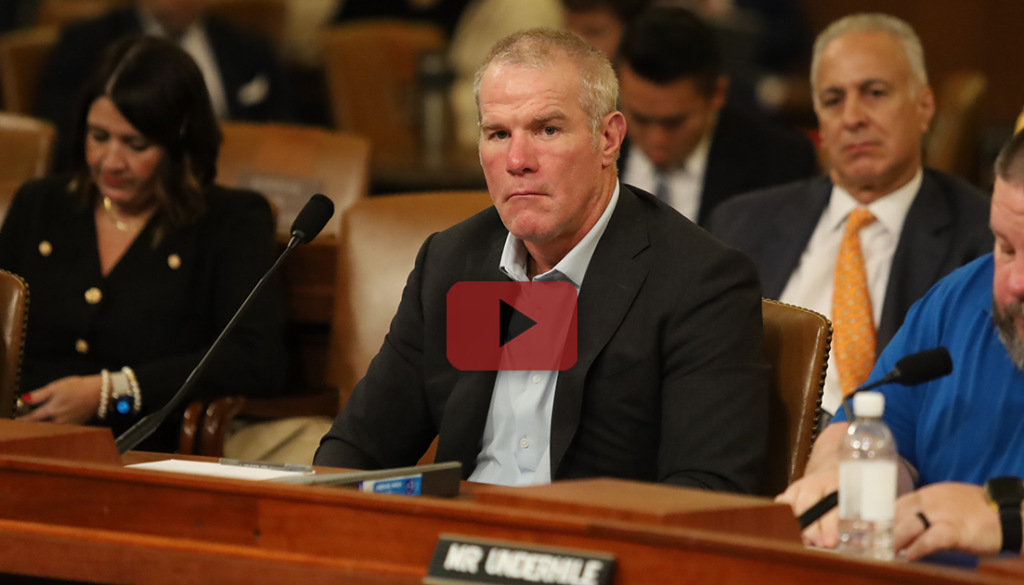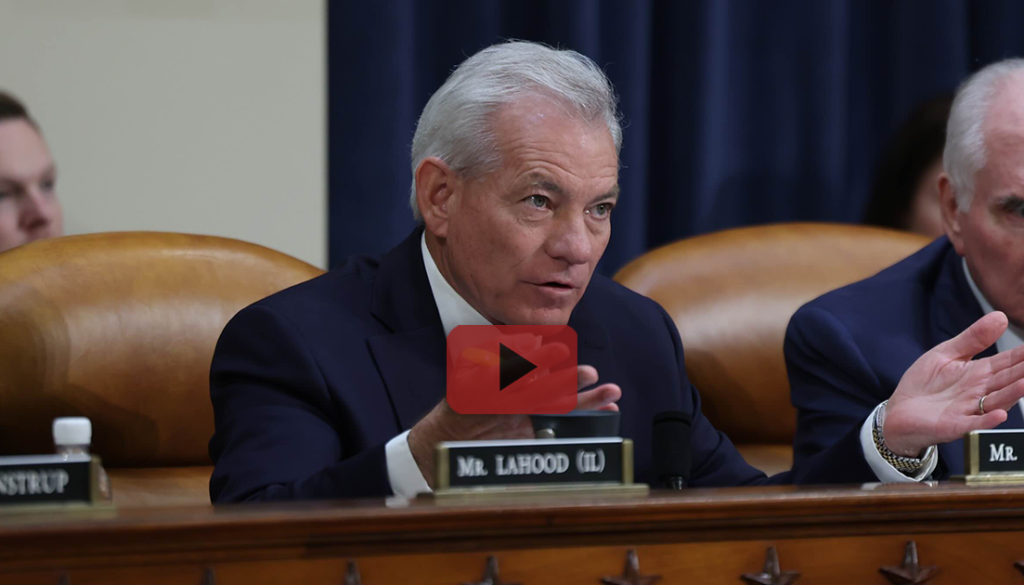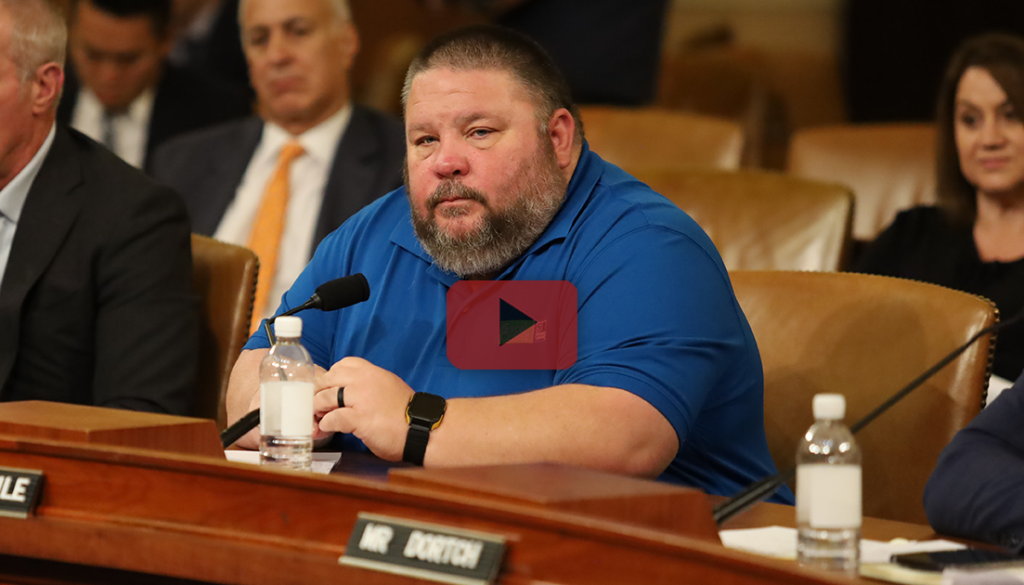Brett Favre: “Our laws don’t sufficiently protect against TANF spending unrelated to helping people out of poverty.”
WASHINGTON, D.C. – Congress must address fixable problems within the Temporary Assistance for Needy Families (TANF) block grant that has contributed to mission drift and opened the door to waste, fraud, and abuse, witnesses urged at a Ways and Means Committee hearing on the problems with TANF. The hearing focused on the lack of guardrails and accountability in the non-assistance portion of TANF, which accounts for 77 percent of TANF spending, that has resulted in misuse of funds across the country and missed opportunities to lift more Americans out of poverty. The stories shared about fraud in state programs alongside examples of the positive effect that TANF-funded programs focused on work can have on Americans who are struggling, emphasized the importance of taking action to protect taxpayers and target funds towards promoting work.
Ways and Means Committee Republicans have introduced several pieces of legislation to address these concerns and put in place basic financial safeguards and guardrails on state use of TANF funds. This includes targeting TANF non-assistance to families under 200 percent of the poverty level, implementing spending deadlines and limiting carryover of funds, directing more TANF non-assistance towards work, education, and training activities, and requiring reporting of improper payments.
TANF Success Story: Work Is The Way Up and Out of Poverty
Only 8.1 percent of TANF funds are spent by states to support work, training, and education activities, even though these activities are central to TANF’s mission. Matt Underhile, a corrections officer from a community in Missouri represented by Ways and Means Committee Chairman Jason Smith (MO-08), had his life transformed by a work training program funded by TANF. Based on his experience, Mr. Underhile testified to the “life-changing” nature of work’s ability to both provide dignity and help people escape poverty.
Chairman Smith: “Based on your experience with a program in Missouri that provides similar services, what would it do for individuals and families and communities across this country were we to give states the opportunity to channel more of their efforts and their TANF non-assistance funds towards proven solutions that help Americans enter into the workforce?”
Matt Underhile, Missouri corrections officer: “It would be absolutely life changing, because if you don’t teach somebody how to work and how to support themselves, giving them money, year after year, month after month, isn’t going to do anything for them. You’re going to hold them where they’re at. If you don’t teach them anything, they’re not growing.”
Brett Favre on Lessons Learned From Mississippi’s Misuse of Welfare Funds
Multiple states have misused federal TANF non-assistance funds because a lack of transparency and accountability opened the door for waste, fraud, and abuse. As former NFL quarterback Brett Favre shared, weak rules enabled self-dealing and embezzlement by Mississippi state officials that led to multiple criminal convictions. In his powerful opening statement, Favre urged Congress to pass legislation that adds necessary guardrails to the use of TANF funds by state agencies.
Mr. Brett Favre, former NFL quarterback: “Importantly, I have learned that nobody was or is watching how TANF funds are spent. Our laws don’t sufficiently protect against TANF spending unrelated to helping people out of poverty. States have too much flexibility on how they spend this money, which leads to waste and abuse. We need mechanisms for oversight of TANF spending and greater clarity as to permissible uses of TANF funds. Democrats and Republicans should agree, rampant state misuse of TANF funds is hurting efforts to help vulnerable families and children.”
“Work Is Central To the Wellbeing of The Individual”
One of the core purposes of TANF is to end government dependence through work. Aside from the immediate benefit of providing a paycheck, a welfare expert shared examples of the intangible benefits from work with Rep. David Schweikert (AZ-01). Currently, TANF non-assistance has no requirements, incentives, or minimum standards for state spending on work, education, or training activities. This deprives Americans in need of better connections to the workforce and gainful employment.
Rep. Schweikert: “How can we help our brothers and sisters? I’d like to submit some articles and a University of Chicago study that talks about the relationship to work at the end of 10 years is the single most powerful thing in changing poverty, not transfer payments. What would you do?”
Mr. Sam Adolphson, welfare expert: “What’s really central to the whole thing, what’s central to TANF, and it’s work. If you look at one of the leading predictors of whether someone in recovery will relapse in substance abuse, it’s whether or not they have a job. If you look at rates of depression, they’re much, much higher among those who are unemployed. Work is central to the well being, and ultimately, the health of the individual, and TANF has recognized that since 1996. That’s why a big part of why the core objectives revolve around work.”
Committee Action Timeline: 2 Year Investigation Into TANF Yields Legislative Solutions
Since the start of the House Republican majority, the Ways and Means Committee has investigated and unearthed problems in both the assistance and non-direct assistance portions of TANF. Work and Welfare Subcommittee Chairman Darin LaHood (IL-16) detailed the timeline of hearings and investigative work that led to the introduction of legislation by Committee Republicans addressing the challenges identified in the Committee’s nearly two year investigation.
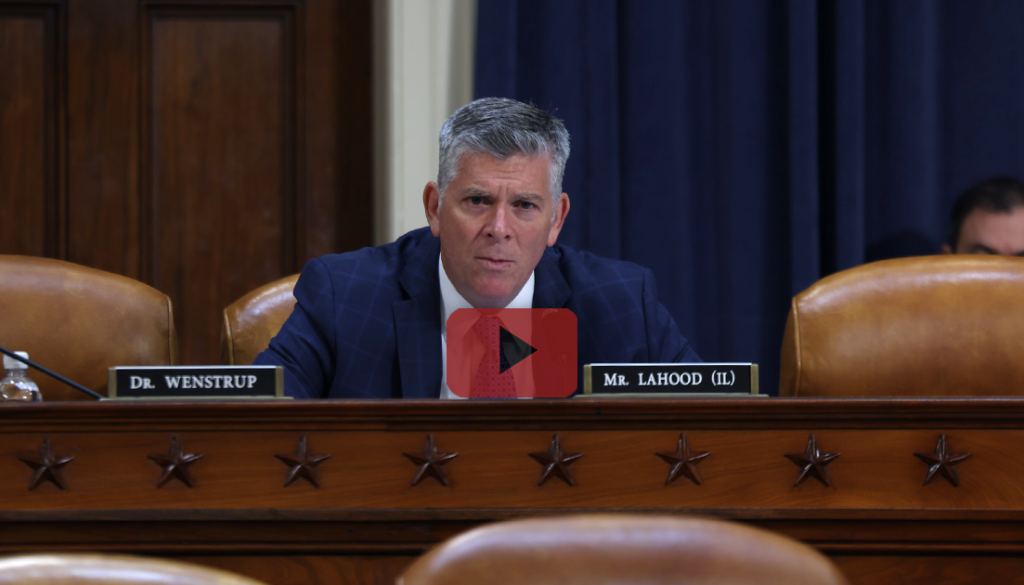
Rep. LaHood: “Today is a culmination of two years worth of work that we’ve done on our Subcommittee on Work and Welfare. In March 2023, our Subcommittee on Work and Welfare held our first hearing examining work requirements in TANF and the need for reforms to strengthen basic assistance. As a result of that hearing, in May 2023, we passed the Fiscal Responsibility Act, which included reforms to strengthen TANF and close loopholes to reinforce work requirements. In June 2023, we turned our attention to the non-assistance side of TANF and sent a letter to HHS requesting information on the agency’s oversight efforts. In July 2023, we held our second hearing on TANF. This hearing focused on reclaiming TANF non-assistance to improve accountability and support work. In September 2023, Chairman Smith and I requested GAO to do a nationwide investigation of TANF non-assistance spending and they have provided a preliminary report of their findings for this hearing today. In March, Republican committee members introduced seven new pieces of legislation to reform TANF non-assistance using what we learned from our investigation. We have done the work and understand what needs to be done. I know this is something that both sides of the aisle care deeply about.”
Measuring Outcomes Helps Eliminate Abuse and Supports Those in Need
There are virtually no rules governing how states spend TANF non-assistance dollars. A primary issue is that states do not track outcomes for many of the programs that receive TANF funds. In response to Rep. Ron Estes (KS-04), a welfare expert urged Congress to adopt stricter outcome measurements to improve transparency while preserving state flexibility to respond to the unique needs of communities.
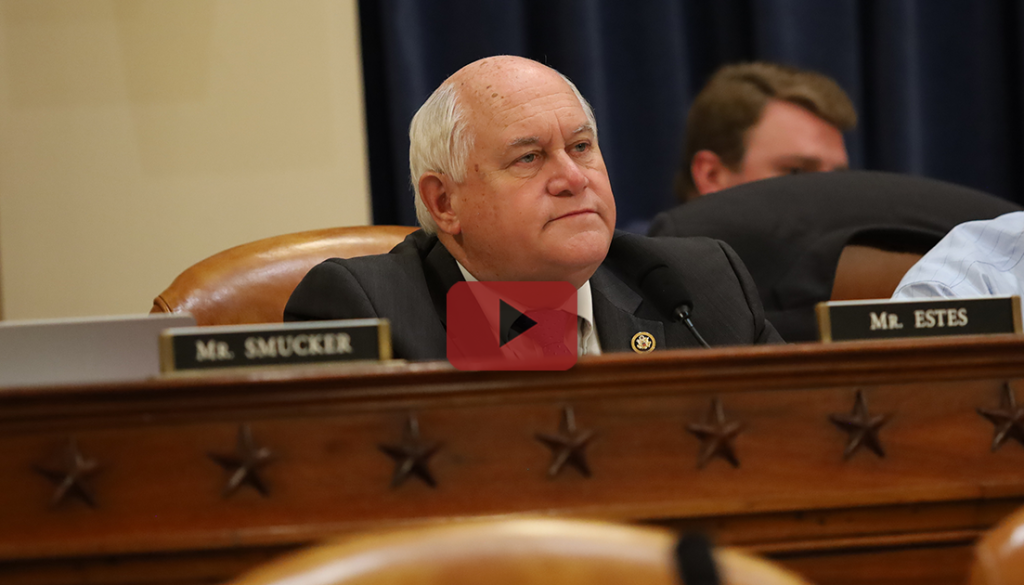
Rep. Estes: “Mr. Adelson, as we think through possible reforms, what suggestions do you have for eliminating potential abuse while still maintaining flexibility for states and truly successful programs?”
Mr. Sam Adolphson, welfare expert: “First is to measure performance, and we need to do that very well, and we don’t do it often enough. What do I mean by that? Every participant that comes in the program that we’re helping walk through with case management, with job supports, with cash assistance, we should follow that person when they leave the program into their job. Did they stay at the job? Did their incomes go up? When we do that, you start to see which programs work the best, and we can put more resources towards those programs. We did that in Maine with our case management group and it was amazing to watch those folks progress, doubling and tripling their incomes over the next year or two. I think measuring performance outcomes of all these programs is a really critical step.”
GAO Report: TANF Audit Findings are Persistent and Often Go Unaddressed
One of the hearing’s main themes was the widespread waste, fraud, and abuse in TANF non-assistance dollars. The day of the hearing, the Government Accountability Office (GAO) released a preliminary report showing the national severity and scope of the misuse of federal welfare funds. Rep. Carol Miller (WV-01) noted 99 of the 155 findings have been repeated for more than a year but remain unaddressed, indicating long-term, persistent problems with the program. Federal funds were found to have been used to pay for real estate, resort vacations, cosmetic surgery, payroll for nonexistent and former staff, among other items unrelated to TANF and its core purposes.
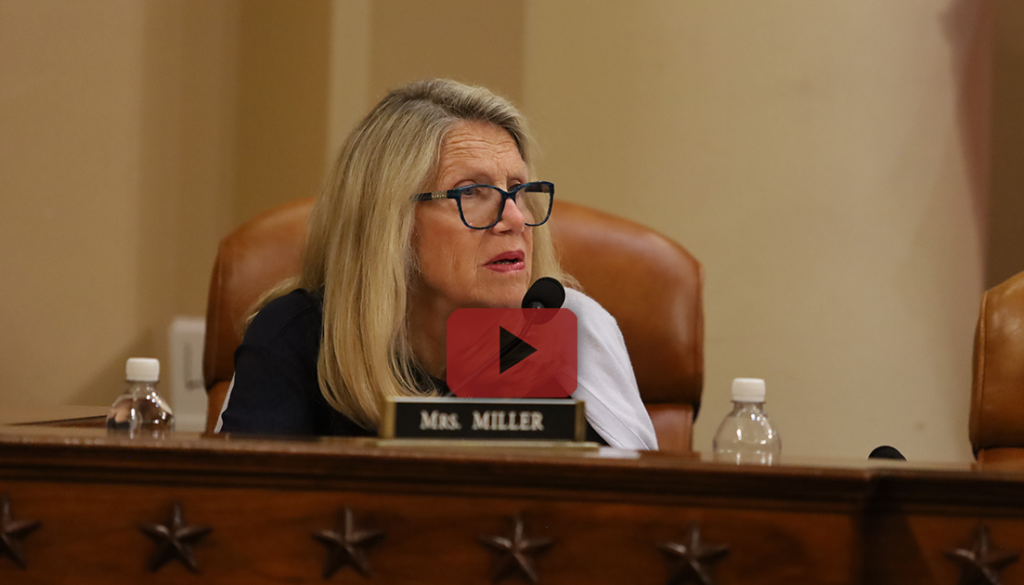
Rep. Miller: “In reviewing the GAO statement for the record, highlighting the forthcoming report that Chairman Smith and Chairman LaHood requested to investigate TANF non-assistance spending, one of the things that disturbed me was how widespread and repetitive TANF waste, fraud, and abuse is in our country, and how weak our accounting systems are to catch and correct it. According to the GAO, 99 of the 155 audit findings have repeated for at least one year. In my home state of West Virginia, they’ve had the same internal control deficiency finding reported for 15 years and nothing has been done to correct it. Mr. Favre, do you believe more scandals like the one that you found yourself involved in in Mississippi is possible across the country if we don’t act now to reform and bring more transparency and accountability to TANF?”
Mr. Brett Favre, former NFL quarterback: “100 percent. Absolutely. If it can happen in my state, it can happen in any state. You just spoke on the statistics, and it’s kind of frightening to be honest with you, what is being wasted.”
“Welfare Wasn’t Ever Meant to Be A Career Choice.”
TANF was designed to help Americans in need during a rough period of their life and, through work and skills training programs, help them eventually get a job so they can support themselves and their families. Matt Underhile, a Missouri corrections officer who now has a job that supports his family thanks to such assistance programs, reminded the Ways and Means Committee that welfare was designed to be, and it is in people’s best interest to be, temporary and not a lifelong “career.”
Matt Underhile, Missouri corrections officer: “I would make job training the focus of it and not put limits on who’s qualified. I know certain people that I went to school with that needed the [Missouri Excel] Skill-Up program for assistance. They didn’t qualify because they were a single male with no kids. They didn’t qualify for transportation money. They didn’t qualify for anything. Training people to work and getting them back to work. Welfare wasn’t ever meant to be a career choice. If you don’t care enough about yourself and your family to want to get out of that, then you don’t deserve funds to begin with.”

